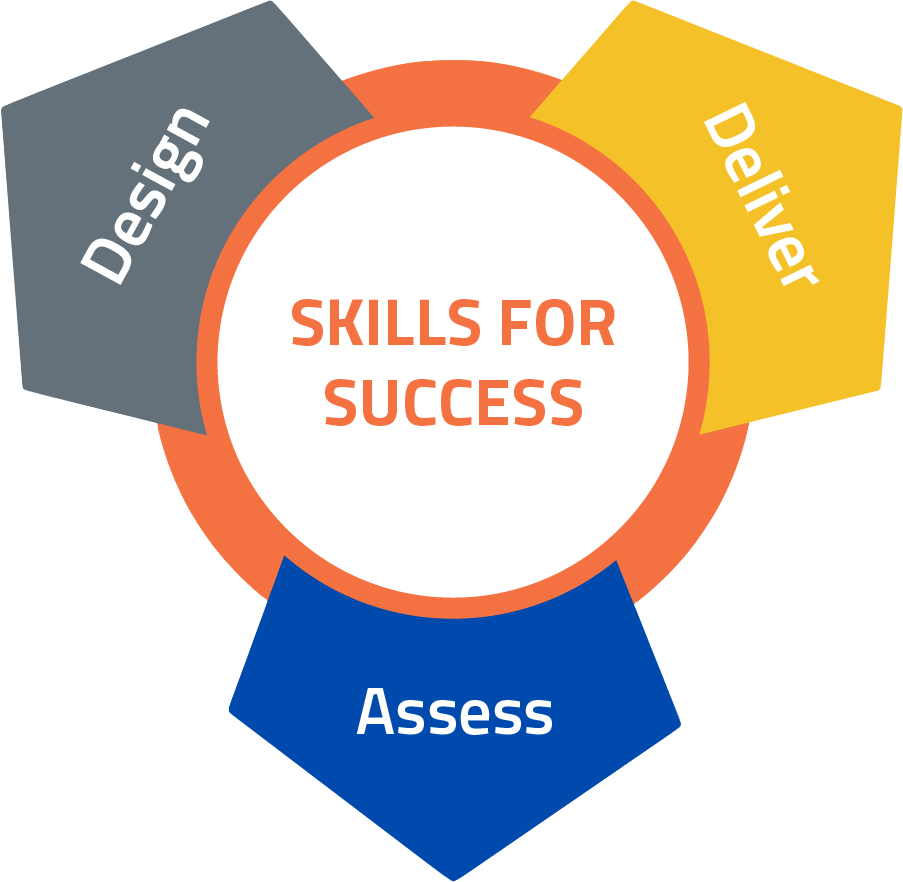Adaptability Skills help participants deal effectively with change, learn new skills and behaviours when needed, stay focused on responsibilities and goals, and not give up when situations are difficult.
The following links include research data and evidence to support the instruction of adaptability.
- Chiesa, A., Calati, R., & Serretti, A. (2011). Does mindfulness training improve cognitive abilities? A systematic review of neuropsychological findings. Clinical Psychology Review, 31(3), 449-464. https://doi.org/10.1016/j.cpr.2010.11.003 (login required).
- Dweck, C. (2006). Mindset: The New Psychology of Success. Penguin Random House. New York.
- Hattie, J. (2009). Visible Learning: A Synthesis of Over 800 Meta-Analyses Relating to Achievement. SAGE Publications.
- Holtkamp, M. (n.d.). Leadership skills and the role of adaptability and creativity in effective leadership: A literature review geared toward an integrative model.
- Keith, N., & Frese, M. (2008). Effectiveness of error management training: A meta-analysis. The Journal of Applied Psychology, 93(1), 59-69. https://doi.org/10.1037/0021-9010.93.1.59 (login required).
- Kivunja, C. (2014). Teaching Students to Learn and to Work Well with 21st Century Skills: Unpacking the Career and Life Skills Domain of the New Learning Paradigm. International Journal of Higher Education, 4(1), p1. https://doi.org/10.5430/ijhe.v4n1p1 (login required).
- Kobyli?ska, D., & Kusev, P. (2019). Flexible Emotion Regulation: How Situational Demands and Individual Differences Influence the Effectiveness of Regulatory Strategies. Frontiers in Psychology, 10. https://doi.org/10.3389/fpsyg.2019.00072 (login required).
- Levin, H. M. (2015). The Importance of Adaptability for the 21st Century. Society, 52(2), 136-141. https://doi.org/10.1007/s12115-015-9874-6 (login required).
- Levitin, D. J. (2014). The Organized Mind: Thinking Straight in the Age of Information Overload. Dutton.
- Mithaug, D. E., Martin, J. E., & Agran, M. (1987). Adaptability Instruction: The Goal of Transitional Programming. Exceptional Children, 53(6), 500-505. https://doi.org/10.1177/001440298705300603 (login required).
- Nelson, J. K., Zaccaro, S. J., & Herman, J. L. (2010). Strategic information provision and experiential variety as tools for developing adaptive leadership skills. Consulting Psychology Journal: Practice and Research, 62(2), 131-142. https://doi.org/10.1037/a0019989 (login required).
- Norris, C. J., Creem, D., Hendler, R., & Kober, H. (2018). Brief Mindfulness Meditation Improves Attention in Novices: Evidence From ERPs and Moderation by Neuroticism. Frontiers in Human Neuroscience, 12. https://doi.org/10.3389/fnhum.2018.00315 (login required).
- O’Connell, D., Mcneely, E., & Hall, D. (2008). Unpacking Personal Adaptability at Work. Journal of Leadership & Organizational Studies – J Leader Organ Stud, 14, 248-259. https://doi.org/10.1177/1071791907311005 (login required).
- OECD. (2015). Skills for Social Progress: The Power of Social and Emotional Skills. OECD. https://doi.org/10.1787/9789264226159-en (login required).
- OECD. (2019). OECD Future of Education and Skills 2030: OECD Learning Compass 2030. A Series of Concept Notes. OECD. https://www.oecd.org/education/2030-project/teaching-and-learning/learning/learning-compass-2030/OECD_Learning_Compass_2030_Concept_Note_Series.pdf
- P21. (2011). Partnership for 21st Century Skills (P21). Framework for 21st Century Learning. https://www.battelleforkids.org/networks/p21/frameworks-resources
- Parry, J. H. (1967). Adapting to Teach Adaptability. Mental Health, 26(3), 5-8.
- SRDC. (2021). Research Report to Support the Launch of Skills for Success: Structure, Evidence and Recommendations. Final draft report.
- Whittemore, S. T. (2018). Transversal Competencies Essential for Future Proofing the Workforce.
- Wojnarowska, A., Kobylinska, D., & Lewczuk, K. (2020). Acceptance as an Emotion Regulation Strategy in Experimental Psychological Research: What We Know and How We Can Improve That Knowledge. Frontiers in Psychology, 11. https://doi.org/10.3389/fpsyg.2020.00242 (login required).
- Yeager, D., & Dweck, C. (2012). Mindsets That Promote Resilience: When Students Believe That Personal Characteristics Can Be Developed. Educational Psychologist, 47. https://doi.org/10.1080/00461520.2012.722805 (login required).
Research on Teaching Adaptability
